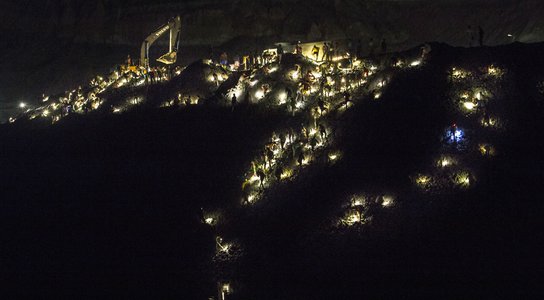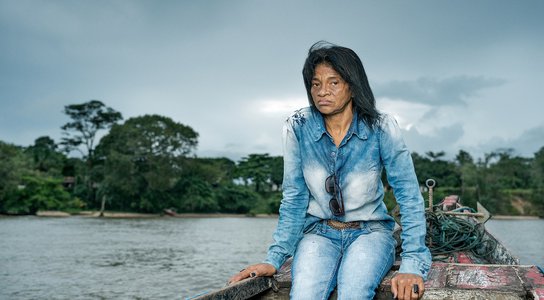Luminate is providing $4 million core funding to Global Witness, which campaigns to end environmental and human rights abuses driven by the exploitation of natural resources and corruption in the global and political economic system. The funding builds on Luminate's initial $4.8 million core funding three years earlier, and will help Global Witness continue to grow its impact around the world in uncovering transnational corruption and holding power to account. Here, we wanted to highlight the importance, and impact, of some of this great work.
Joining the dots in transnational corruption
When you buy a new phone, how do you consider the impact beyond your bank account? You might think about the environmental cost - will my old phone get recycled? You might consider whether your phone provider or manufacturer shares your values or is an ethical company. It's probably a stretch for you to consider whether the components in it have been produced fairly, or whether the raw materials used might have caused death or misery in another country. After all, it's a very long and largely hidden chain of connections between Congolese coltan and the battery in your sleek device.
That long chain applies also to the behaviour of major companies, where a host of professional (and unprofessional) intermediaries, shell companies, and opaque transactions shield big companies and cleanse revenues and consciences. What connects the investment decisions of board room executives in European capitals to financial crimes and violence in places like Nigeria and Honduras? The prospect of financial return, the collusion of middlemen and the weakness of institutions are just a few factors. But so is the distance.
Closing the gap
To trace this chain of accountability, you need many pieces of information, including:
- How that European-based company is structured;
- What payments its subsidiaries make to governments;
- The identity of intermediary organisations and their true owners;
- The terms of the contracts between all interested parties;
- And of course the political context in the oil-rich country.
So much of this is hidden - but organisations like Global Witness are shedding light on this chain to great effect.
Many countries are blessed with a natural inheritance that can, under the right circumstances, be a motor for sustainable economic and social development. But time and again, this is not the case. The huge amounts of money to be made out of the exploitation and sale of natural resources is too tempting a prize for powerful actors, who prioritise either personal gain, corporate profits or “national interest” over the needs, rights and livelihoods of their people, especially those living closest to the resources themselves.
With 24 years' experience in investigations and campaigns on abuses connected to oil, minerals and forests, Global Witness has developed a clear and effective approach:
- Find the Facts - on the ground investigations and data analysis establish the scale of natural resource abuses, such as the hidden value of the $31bn jade industry in Myanmar, controlled by a tiny and opaque coterie;
- Expose the Story - tales of multi-million dollar deals, corruption red flags, and attacks on transparency laws, as we saw in events surrounding Exxon's $120m deal with the Liberian Government;
- Change the System - supporting litigation against powerful interests and stronger regulation, such as the promised introduction of company ownership registers in UK overseas territories.
Real and present dangers
Tracing the flow of money and influence is critical. But so is the ability to use that information to hold the powerful to account. There has been a horrifying rise in violence and intimidation towards activists, human rights defenders and journalists. Alongside its data-powered investigations, Global Witness has worked to raise awareness of the killings of environmental activists. Their report “At What Cost?” revealed that at least 200 people were killed in 2017 defending their land, forests and rivers against destructive industries. While investigators can play an important role in unearthing abuses and those responsible for it, individuals and communities living on and around natural resources must have the freedom and rights to hold operating companies and their governments to account.
Luminate recently published its new strategy in which we outlined our commitment to financial transparency, civic empowerment and independent media, including a strong emphasis on investigative journalism. We believe Global Witness plays an important bridging role between the global transparency movement, investigative journalism and accountability in countries most affected by natural resources-related abuses. They work closely with partners to identify opportunities to tackle impunity, especially by multi-national companies who use bribery to gain access to markets and rob poor countries of their wealth. Two big brands in the oil sector, Royal Dutch Shell and Eni, are currently facing prosecution in Italy for alleged corrupt practices in Nigeria.
Luminate's $4 million funding over the next three years will enable Global Witness to continue to investigate, expose and communicate major abuses, spur regulatory and normative changes, and empower local groups to hold companies and governments to account, and reduce opportunities for corruption and the abuse of human rights.


